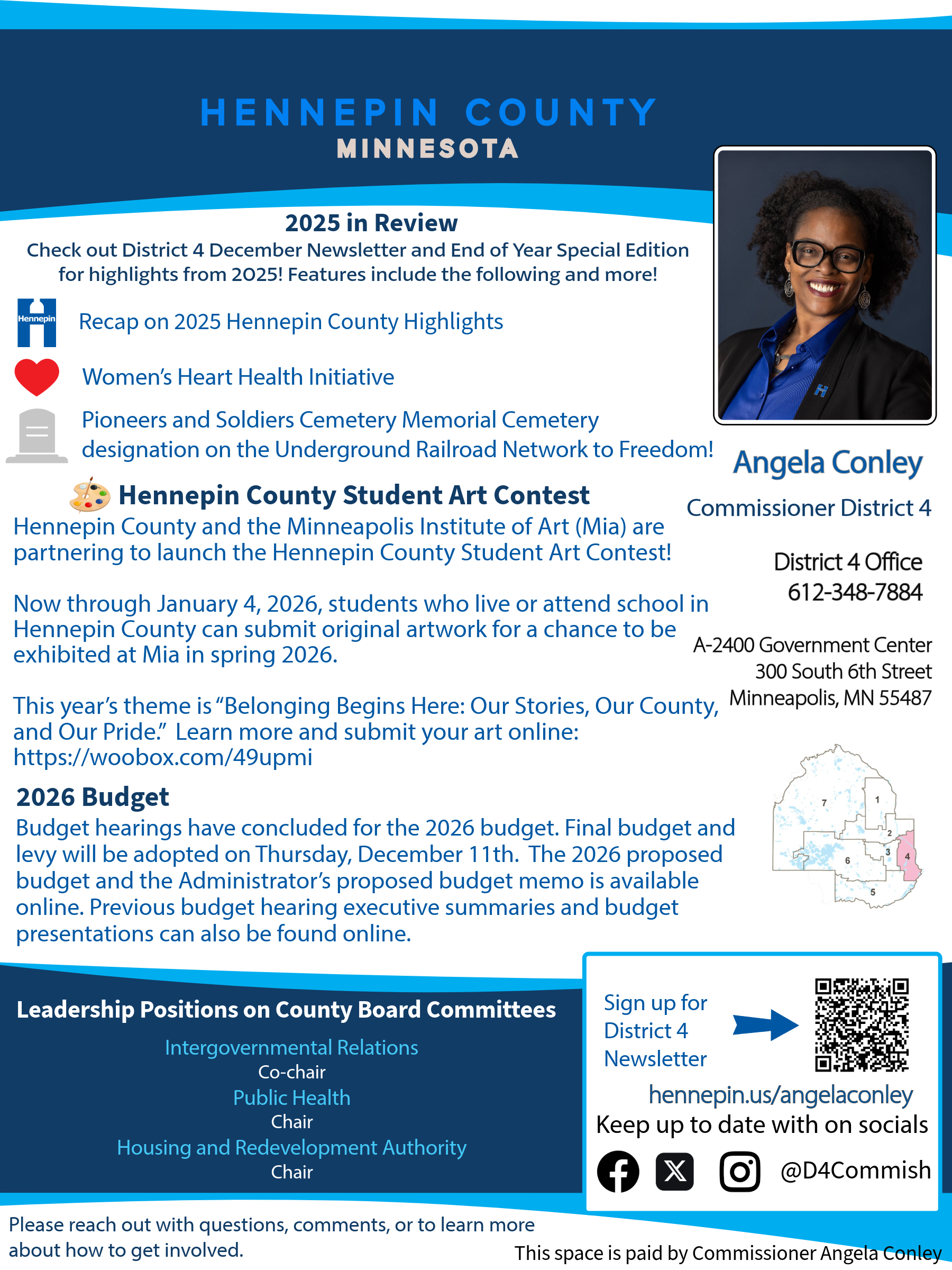By Susan Gust, Amy AusiÉirithe
The Alley Newspaper and its editor, Harvey Winje, have been invited to be a part of The Wendell Phillips Bicentennial Symposium at the Harvard Law School Charles Hamilton Houston Institute for Race and Justice, June 2 ”“ 4. This exciting invitation was extended to The Alley because the Symposium”'s scholarly planning committee was enthused to discover a vibrant community with Wendell Phillips as its namesake. They were even more pleased to learn that the Phillips Community has embraced Wendell”'s spirit of discord and discourse as its means to seek justice in the same way that Mr. Phillips did some 200 years ago. Harvey Winje and The Alley Newspaper were invited to attend this symposium and present how the life and legacy of Wendell Phillips inspires our work individually and in the community. Dave Moore and Linnea Hadaway”'s poignant Spirit of Phillips cartoons will be also be featured at this symposium as a provocative way to popularize history and to exemplify issues that span generations.
Harvey Winje and Dave Moore are honored to travel to Boston in June to attend this symposium and to represent the work of so many in the Phillips Community and in the pages of The Alley Newspaper. Cartoons that have appeared in the pages of The Alley Newspaper will appear as part of the power point presentation given by Wendell Phillips scholar and Macalester College professor, James Stewart, as part of his keynote address at the Charles Hamilton Houston Institute for Race and Justice, Harvard Law School. Additional cartoons and graphics depicting Wendell”'s words and their relevance in our community will be on display at the symposium.
One of the ideas this invitation has spawned is to produce greeting cards featuring Dave and Linnea”'s cartoons that use the words (sometimes loosely) of Wendell Phillips. These greeting cards will be sold at the Symposium to help fund the trip to Boston and to raise money for The Alley Newspaper. In the May issue of The Alley, we will highlight some of these greeting cards and let you know how you may purchase them locally. You can help The Alley Newspaper get to Harvard and do well by the Phillips Community! Contact editor@alleynews.org with any questions about this unique opportunity.
About Wendell Phillips and the June Symposium:
Public historians and interpreters, community activists for social justice, and academic historians will mark the two hundredth anniversary of the birth of Wendell Phillips”“native Bostonian, abolitionist, orator, and activist. He was a national celebrity during the Civil War who believed and often declared that Boston and Massachusetts must serve as models of liberty and justice not only for the rest of the country but for the wider world as well. Though a graduate of its college and law school, Harvard University banned him from campus for his uncompromising defense of equal rights and his unwillingness to be intimidated by anti-abolitionist mobs.
In a diverse and vibrant abolitionist movement, Phillips stands out primarily for the longevity of his commitment to equal rights for black Americans (extending beyond formal abolition), and the variety of groups whose rights he championed (women, Indians, Irish nationalists, workers). Phillips prompts us to consider the larger questions of what happens to a movement as its goal nears fulfillment (or: what did abolitionists do during and after abolition?), and whether and how forms of oppression are related, and are best battled separately or all together.
WHAT, WHERE, WHEN: PROGRAM, LOCATIONS, DATES
The project currently has several parts, some of which will be held at the Harvard Law School, and some in downtown Boston.
The parts include:
- Keynote address by James Brewer Stewart, the James Wallace Professor of History Emeritus at Macalester College, and Phillips biographer. Through his role as the founder of Historians Against Slavery, an organization fighting human trafficking, Jim has a highly developed sense of the connections between past and present regarding slavery and abolition. He speaks all over the country on what slavery and abolition in Phillips”' time has to teach us about slavery and its abolition in ours.
- A professional development workshop for K-12 teachers
- An exhibition of Phillips-related material at the Houghton Library (which holds the largest collection of Phillips”' papers, as well as material on his relationship with Harvard University), and a reception to celebrate its opening
- A symposium on Wendell Phillips”' Life and Legacy
- A walking tour, to result in a permanent brochure; the walking tour will be offered twice during the bicentennial weekend
- Two plenary discussions on interracial activism past and present – one at the end of the symposium, and another to be held at Old South Meeting House.
MISSION
Every part of the project will be an honest, open dialogue, about not only what was heroic in this white abolitionist”'s story but also some of the limits and less sunny parts of the story. The biracial antislavery organizations remained primarily white-controlled; black abolitionists who harmoniously worked with white colleagues usually also pursued their goals in separate, all-black organizations at the same time. The costs to abolitionists of speaking out often fell harder and heavier on the black members than on the whites. Occurring in the first year of the Civil War Sesquicentennial, the Phillips bicentennial connects not only to the wide popular interest in emancipation and the Civil War, but also to the fate of civil rights in the aftermath and the state of interracial activism in the present.









